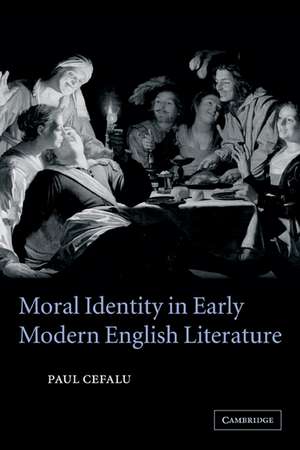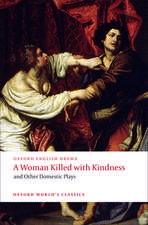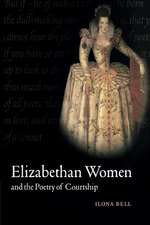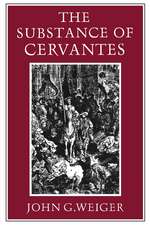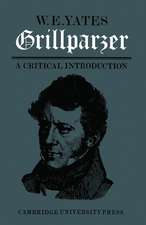Moral Identity in Early Modern English Literature
Autor Paul Cefaluen Limba Engleză Paperback – 29 iul 2009
| Toate formatele și edițiile | Preț | Express |
|---|---|---|
| Paperback (1) | 333.59 lei 6-8 săpt. | |
| Cambridge University Press – 29 iul 2009 | 333.59 lei 6-8 săpt. | |
| Hardback (1) | 471.24 lei 6-8 săpt. | |
| Cambridge University Press – 17 noi 2004 | 471.24 lei 6-8 săpt. |
Preț: 333.59 lei
Nou
Puncte Express: 500
Preț estimativ în valută:
63.83€ • 68.26$ • 53.22£
63.83€ • 68.26$ • 53.22£
Carte tipărită la comandă
Livrare economică 17 aprilie-01 mai
Preluare comenzi: 021 569.72.76
Specificații
ISBN-13: 9780521117234
ISBN-10: 0521117232
Pagini: 236
Dimensiuni: 152 x 229 x 14 mm
Greutate: 0.35 kg
Editura: Cambridge University Press
Colecția Cambridge University Press
Locul publicării:Cambridge, United Kingdom
ISBN-10: 0521117232
Pagini: 236
Dimensiuni: 152 x 229 x 14 mm
Greutate: 0.35 kg
Editura: Cambridge University Press
Colecția Cambridge University Press
Locul publicării:Cambridge, United Kingdom
Cuprins
Acknowledgements; Introduction: English Protestant moral theory and regeneration; 1. Guilt, shame, and moral character in early modern English theology and Sir Philip Sidney's Countess of Pembroke's Arcadia; 2. The three orders of nature, grace, and law in Edmund Spenser's The Faerie Queene, Book II; 3. Conformist and puritan moral theory: from Richard Hooker's natural law theory to Richard Sibbes's ethical occasion; 4. The elect body in pain: Godly fear and sanctification in John Donne's poetry and prose; 5. Absent neighbors in George Herbert's 'The Church', or why Agape becomes Caritas in English Protestant devotional poetry; 6. Moral pragmatism in the theology of John Milton and his contemporaries; Epilogue: theorizing early modern moral selfhood; Notes; Index.
Notă biografică
Descriere
Paul Cefalu explores the relationship between ethical character and religious conversion in sixteenth- and seventeenth-century English literature.
